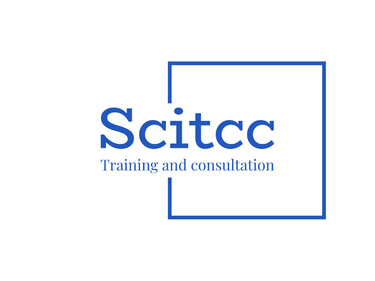
Advanced Investigation: Evaluation and Analysis
Enhancing Investigative Competence through Critical Thinking, Evaluation Techniques, and Analytical Tools
$5500.00
Advanced Investigation: Evaluation and Analysis - 5-Day Course Outline for KSA & GCC Professionals
Master Investigative Excellence for Corporate Integrity and Compliance
This intensive 5-day Advanced Investigation training course equips professionals across Saudi Arabia and the GCC region with cutting-edge investigative methodologies, forensic analysis techniques, and evidence evaluation skills essential for uncovering fraud, ensuring regulatory compliance, and protecting organizational assets. Aligned with regional anti-corruption initiatives and Vision 2030’s governance standards, this comprehensive program provides practical expertise for conducting thorough, legally defensible investigations in the Middle East business environment.
Day 1: Investigation Fundamentals and Legal Framework
Morning Session: Investigation Principles and Methodology (9:00 AM - 12:30 PM)
Module 1.1: Introduction to Advanced Corporate Investigations
The investigative profession: Roles, responsibilities, and ethical standards
Types of workplace investigations: Fraud, misconduct, harassment, policy violations
Investigation objectives: Fact-finding, evidence gathering, resolution
Corporate governance and investigation requirements in KSA and GCC
Case studies: High-profile investigations in the Middle East region
Module 1.2: Legal and Regulatory Framework
Saudi Arabian legal system: Sharia law and commercial regulations
UAE Commercial Companies Law and investigation protocols
GCC anti-fraud legislation and corporate compliance requirements
Data protection laws: Saudi PDPL (Personal Data Protection Law)
Labor law considerations in workplace investigations
Evidence admissibility and chain of custody requirements
Module 1.3: Investigation Planning and Risk Assessment
Preliminary assessment: Determining investigation scope
Risk-based investigation approaches
Resource allocation and team formation
Investigation timeline development
Stakeholder identification and communication planning
Documentation protocols from inception
Afternoon Session: Investigation Ethics and Governance (1:30 PM - 5:00 PM)
Module 1.4: Professional Ethics and Integrity
Code of ethics for investigators in GCC contexts
Objectivity, independence, and avoiding conflicts of interest
Confidentiality and privilege considerations
Cultural sensitivity in Middle Eastern investigation contexts
Whistleblower protection mechanisms
Ethical dilemmas and decision-making frameworks
Module 1.5: Corporate Compliance Program Evaluation
Assessing control environments and fraud prevention systems
Red flags indicating weak internal controls
Compliance monitoring and testing methodologies
Integration of investigations with compliance functions
Workshop: Developing investigation protocols aligned with GCC standards
Day 2: Evidence Collection and Forensic Analysis
Morning Session: Evidence Management (9:00 AM - 12:30 PM)
Module 2.1: Types and Categories of Evidence
Documentary evidence: Contracts, emails, financial records, reports
Physical evidence: Assets, inventory, tangible items
Electronic evidence: Digital files, databases, metadata
Testimonial evidence: Witness statements and interviews
Circumstantial versus direct evidence
Evidence reliability and authentication standards
Module 2.2: Forensic Accounting Fundamentals
Financial statement analysis and anomaly detection
Transaction testing and substantive procedures
Asset misappropriation investigation techniques
Revenue recognition schemes and detection methods
Expense reimbursement fraud patterns
Benford’s Law application in fraud detection
Module 2.3: Chain of Custody and Evidence Preservation
Evidence collection best practices
Proper handling, labeling, and storage procedures
Chain of custody documentation and tracking
Digital evidence preservation techniques
Evidence tampering prevention
Legal admissibility requirements in GCC courts
Afternoon Session: Digital Forensics and Data Analysis (1:30 PM - 5:00 PM)
Module 2.4: Electronic Evidence and Digital Forensics
Computer forensics fundamentals
Email and communication analysis
Mobile device forensics and data extraction
Cloud storage investigation techniques
Social media evidence gathering
Metadata analysis and timeline reconstruction
Module 2.5: Data Analytics for Investigations
Data mining and pattern recognition
Anomaly detection using statistical methods
Link analysis and relationship mapping
Financial ratio analysis for fraud indicators
CAAT (Computer-Assisted Audit Techniques) applications
Practical exercise: Analyzing financial data for irregularities
Day 3: Interview Techniques and Witness Management
Morning Session: Advanced Interviewing Skills (9:00 AM - 12:30 PM)
Module 3.1: Interview Planning and Preparation
Interview objectives and strategy development
Subject classification: Witnesses, complainants, suspects
Question development: Open-ended, closed, leading, hypothetical
Interview location selection and environmental considerations
Cultural protocols for interviewing in GCC contexts
Legal rights and procedural safeguards
Module 3.2: Cognitive Interview Techniques
Building rapport and establishing trust
Active listening and observation skills
Memory retrieval enhancement techniques
Dealing with reluctant or hostile witnesses
Detecting deception and inconsistencies
Note-taking and documentation during interviews
Module 3.3: Investigative Interviewing Models
PEACE model: Preparation, Engage, Account, Closure, Evaluate
Reid Technique principles and applications
Structured interview protocols
Question sequencing strategies
Handling denials and rationalizations
Cultural considerations in Middle Eastern interview contexts
Afternoon Session: Statement Analysis and Deception Detection (1:30 PM - 5:00 PM)
Module 3.4: Statement Analysis Fundamentals
Verbal cue analysis and linguistic patterns
Pronoun usage and distancing language
Temporal sequencing and timeline inconsistencies
Omissions, minimizations, and deflections
Written statement evaluation techniques
Comparing multiple witness accounts
Module 3.5: Non-Verbal Communication and Body Language
Baseline behavior establishment
Clusters of deceptive indicators
Micro-expressions and facial analysis
Proxemics and spatial behavior
Physiological stress indicators
Cultural variations in non-verbal communication across GCC
Role-play exercises: Conducting investigative interviews
Day 4: Investigation Analysis and Case Building
Morning Session: Analytical Methodologies (9:00 AM - 12:30 PM)
Module 4.1: Critical Thinking and Analytical Reasoning
Logical reasoning frameworks for investigators
Hypothesis development and testing
Avoiding cognitive biases and confirmation bias
Inductive versus deductive reasoning
Root cause analysis techniques
Timeline analysis and chronology development
Module 4.2: Link Analysis and Network Mapping
Relationship mapping and social network analysis
Follow-the-money techniques in financial investigations
Identifying beneficial ownership structures
Shell company detection in GCC jurisdictions
Using visualization tools for complex investigations
Connecting disparate pieces of evidence
Module 4.3: Fraud Schemes and Typologies
Asset misappropriation: Cash, inventory, payroll fraud
Corruption schemes: Bribery, kickbacks, conflicts of interest
Financial statement fraud detection
Procurement fraud and bid rigging
Cybercrime and digital fraud schemes
Regional fraud trends in Saudi Arabia and GCC markets
Afternoon Session: Evidence Evaluation and Case Development (1:30 PM - 5:00 PM)
Module 4.4: Evidence Sufficiency and Weight Assessment
Evaluating evidence quality and credibility
Corroboration and triangulation techniques
Dealing with conflicting evidence
Burden of proof standards: Civil versus criminal
Reasonable suspicion versus probable cause
Gap analysis and additional evidence requirements
Module 4.5: Investigation Documentation Standards
Investigation file organization and indexing
Chronological versus subject-matter organization
Maintaining objective, factual documentation
Contemporaneous note-taking practices
Photography and visual evidence documentation
Digital file management and security protocols
Case study: Analyzing complex investigation scenarios
Day 5: Reporting, Recommendations, and Legal Proceedings
Morning Session: Investigation Report Writing (9:00 AM - 12:30 PM)
Module 5.1: Professional Investigation Reports
Report structure: Executive summary, methodology, findings, conclusions
Writing objectively and avoiding speculation
Presenting evidence clearly and logically
Supporting conclusions with documented facts
Addressing alternative explanations
Report formats for different audiences (legal, management, regulatory)
Module 5.2: Findings, Conclusions, and Recommendations
Distinguishing facts from opinions
Reaching defensible conclusions
Developing practical, actionable recommendations
Control weakness identification
Remediation strategies and implementation plans
Follow-up monitoring mechanisms
Module 5.3: Visual Presentation of Findings
Charts, graphs, and timelines for clarity
Organizational charts and relationship diagrams
Financial analysis presentation techniques
PowerPoint presentations for stakeholders
Infographics for complex information
Executive briefing preparation
Afternoon Session: Legal Proceedings and Closure (1:30 PM - 5:00 PM)
Module 5.4: Working with Legal Counsel and Authorities
Attorney-client privilege considerations
Coordination with law enforcement in KSA and GCC
Regulatory reporting obligations and timelines
Litigation support and expert witness testimony
Deposition and trial preparation
Cross-examination strategies and defenses
Module 5.5: Investigation Closure and Lessons Learned
Stakeholder communication of outcomes
Disciplinary action recommendations
Recovery of misappropriated assets
Implementing corrective actions
Post-investigation monitoring
Conducting lessons learned reviews
Updating policies and controls based on findings
Module 5.6: Capstone Exercise and Certification
Comprehensive investigation case study simulation
Team-based investigation project
Report writing and presentation assessment
Peer review and expert feedback
Certificate of completion in Advanced Investigation
Continuing professional development resources
Course Delivery Methods
This advanced investigation training program utilizes:
Expert-led instruction from certified fraud examiners (CFE) and forensic specialists
Real-world case studies from Saudi Arabia, UAE, and GCC investigations
Interactive workshops with evidence analysis exercises
Mock investigations and interview simulations
Digital forensics demonstrations using industry-standard tools
Report writing labs with individual coaching
Legal scenario discussions addressing GCC-specific regulations
Guest speakers from law enforcement and regulatory bodies
Target Audience for KSA & GCC
Ideal for professionals including:
Internal auditors and risk management professionals
Compliance officers and ethics advisors
Corporate security managers and fraud investigators
Legal counsel and in-house attorneys
Human resources professionals conducting workplace investigations
Anti-money laundering (AML) specialists
Government investigators and regulatory officials
Loss prevention and asset protection managers
Prerequisites: 3+ years professional experience in audit, compliance, security, or legal fields; English proficiency; familiarity with basic accounting principles.
Key Learning Outcomes
Upon completing this comprehensive certification program, participants will:
✓ Plan and execute thorough, legally defensible investigations
✓ Apply advanced forensic accounting and data analysis techniques
✓ Conduct effective interviews yielding actionable intelligence
✓ Collect, preserve, and analyze evidence meeting legal standards
✓ Evaluate evidence objectively and reach sound conclusions
✓ Prepare professional investigation reports for diverse audiences
✓ Navigate KSA and GCC legal frameworks confidently
✓ Implement best practices for corporate compliance investigations
Strengthen Organizational Integrity Through Investigation Excellence
In Saudi Arabia’s Vision 2030 era and across the GCC region, corporate governance, transparency, and anti-corruption efforts demand skilled investigators who can uncover wrongdoing while respecting legal and cultural standards. This 5-day intensive provides the advanced competencies essential for protecting organizational assets and maintaining integrity in Middle Eastern business environments.
Become a certified investigation professional—enroll today and master the skills protecting organizations across KSA and GCC markets.


